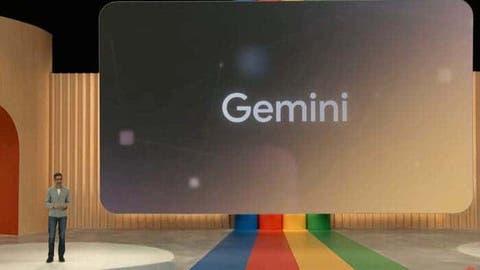Google is building an AI system that outperforms Open AI’s ChatGPT. At least that is what Demis Hassabis, the CEO of Google Deepmind, thinks about the upcoming Gemini AI. Hassabis says that the system is still in development, and it could take several months to complete the AI.
What’s more interesting is that Hassabis says that the development cost of Gemini AI is estimated to be in the hundreds of millions (source). In other words, Google is putting a lot of resources into the AI system. This investment is one of the key factors in Google’s confidence that Gemini AI will surpass the GPT 4 model of ChatGPT.
What is Google Gemini AI, and Why Is it Such a Big Deal?
It’s not just the money that is making Google think that Gemini AI will beat ChatGPT. Instead, it is all about the core of the AI system. Basically, the system is a next-generation AI architecture that will eventually replace PaLM 2. And in case you didn’t know, PaLM 2 is the current AI model behind all of Google’s AI services.
That includes Duet AI in Workspace apps and the Bard chatbot. Google is building the Gemini AI to be more powerful than ChatGPT-4. And the GPT 4 model of Open AI is already a large language model which can generate text and images.
Google announced Gemini during the Google I/O conference. During the event, Google said, “Gemini was created from the ground up to be multimodal, highly efficient at tool and API integrations and built to enable future innovations.”
According to Google, Gemini AI will come in various sizes and capabilities. That means it is flexible and can be tuned according to the needs.
How Google Plans to Beat ChatGPT
Google does not want to replicate something that’s already out there. That’s why offering a similar performance to the GPT 4 is not the main concern of Gemini AI. Instead, it is more about being better.
Problem-Solving and Planning Skills
Hassabis says that the engineers of Google are currently using techniques from AlphaGo. Now, what is AlphaGo?
AlphaGo is the AI that was so powerful that it could beat the champion of the board game Go. And Google is using the same techniques that powered AlphaGo to power Gemini AI. This eventually means Gemini will excel in problem-solving and planning tasks.
On that note, AlphaGo was built using the reinforcement learning process. This process makes the software make repeated attempts to solve a task. It can make adjustments to the feedback it receives on its performance.
Hassabis told Wired, “At a high level, you can think of Gemini as combining some of the strengths of AlphaGo-type systems with the amazing language capabilities of the large models.”
Robotics and Neuroscience
Hassabis and his team of engineers may try to enhance Gemini AI with ideas from other areas. That includes neuroscience and robots. Hassabis says, “We also have some new innovations that are going to be pretty interesting.”
Multimodal Nature
Just like Google announced, Gemini AI is designed to be multimodal. That means it can handle different types of data. For example, it can work with video, audio, text, and images.
Google Gemini AI’s Entry Will Not Be Like Bard
Back in April, an internal document written by a Google engineer leaked. It said that the company was losing its edge in the AI race to the open-source community. That made Google make rapid adjustments to its lean products. And a month later, the search giant removed the waiting list for its chatbot Bard.
Bard was a rushed answer to Open AI’s ChatGPT. But as it was rushed, Google could not showcase what its AI department is actually capable of. After all, the factual mistake that Bard made in the first demo caused the parent company to lose $100 billion in market value (source).
Well, Google has learned its lessons. That’s why Google has plans to make the entry of Gemini AI watertight.

